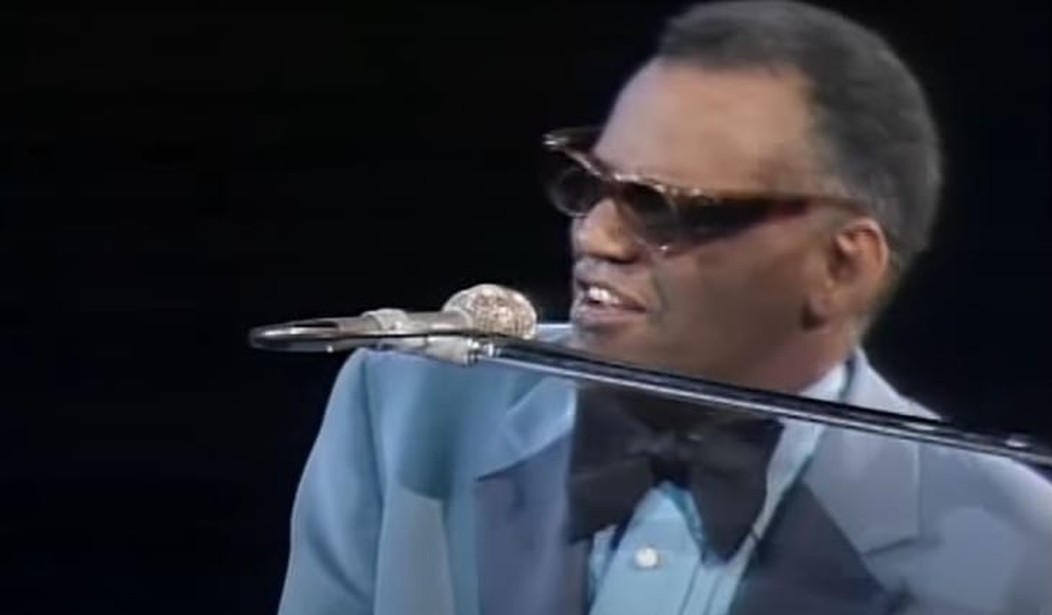Heralding in this July 4 Holiday is the distinctive, iconic, and unmatched voice of Ray Charles singing “America the Beautiful.” No one sang this song like Ray Charles, and the depths expressed in his rendition come from his story: a blind man, who’d seen the glory and depravity of himself, this country, and humanity, yet he could still sing about the grace of God on this country, and find and celebrate the good.
There has been much debate on these pages and other places about the Juneteenth Celebration, now commemorated as a national holiday, diminishing or replacing Independence Day. As I expressed in my article, despite the intentions of some for that to be the case, it will never happen. Opening up to more history and how it has shaped our viewpoint of America and Independence is not a bad thing, but a good one; and it should be used by conservatives as a launch point to teach the fullness of history, and not the selectiveness of it.
To describe the journey of how the signing of the Declaration of Independence was the first phase of the road that would end slavery and lead us to Juneteenth, and how freedom is not a casual construct, but a deliberate and painstaking state of being that must be remembered, pursued, and YES, celebrated at every opportunity. Thomas Jefferson himself said,
“The price of freedom is eternal vigilance”
That vigilance, rigor, and organic joy in the beauty, bounty, and blessedness that is America, is resident in Charles’ rendition of “America the Beautiful.” Gratitude is the natural byproduct of a free life, and the gratitude and praise embodied in the lyrics, and his delivery of the lyrics, cannot be denied.
The site Pop History Dig talks about A Message From The People, the album where Charles’ rendition of “America the Beautiful” was first recorded:
Of the album, Charles explained that he approached it with the intention of including songs “about some of the wrongs of our country” but also “wanted to show what was beautiful and great” about it.
What a stark contrast from this past year of wholesale attempts to re-litigate what is wrong with America in terms of race relations, and destroy the good that has been done. There is a marked campaign to destroy history and rewrite a version that emphasizes the bad in order to enact revenge, while eschewing the good. So, the singing of “The Star-Spangled Banner” and “America the Beautiful” has taken on much more power and context in these days. Definitely for me, and I am sure for many others.
It is also a stark reminder that the versions of these songs loved by all countrymen, no matter what their race, religion, gender, or creed, were sung by a Black young woman named Whitney Houston, and Mr. Ray Charles.
As far as I am concerned, that shuts down a good portion of this nonsense of separate holidays and separate countries. Houston and Charles loved America, and loved the opportunities afforded them that would not have happened in any place but America. On the September 18, 1972, taping of the Dick Cavett Show, Charles first sang his rendition of “America the Beautiful.”
In his interview with Cavett, Charles talked about the lessons imparted by his mother on being self-sufficient, despite his blindness. These lessons should be taught to young people today, whether able-bodied or not.
Charles was born and raised in the segregated South and suffered under Jim Crow. He experienced racism, hatred, discrimination, and marginalization the majority of his adult life. Yet, what he chose to reflect upon and celebrate is the good and blessing America afforded him, as well as doing his part by his life alone (among other things) to uplift and transform the role of Blacks in America.
I have listened to several versions of Charles singing the song, from the 1972 Cavett Show appearance to some final national appearances in D.C. and New York. Charles was detailed in all his arrangements, and this one, done in partnership with his good, lifelong friend Quincy Jones, was no different. The fact that Charles chose to begin with Verse 3 of the ballad is quite evocative, and reflects his heart and love for the country — and for those who sacrificed themselves for its freedoms.
“O beautiful for heroes proved
In liberating strife.
Who more than self their country loved
And mercy more than life!
America! America!
May God thy gold refine
Till all success be nobleness
And every gain divine!”
The power of Charles’ rendition is in the deliberate, thoughtful, expression of the weight and economy of each word. He makes them all count, and you feel every one.
This song is a gift from a man who had a tragic beginning, endured the indignities of Jim Crow, suffered under drug addiction, and had a host of other public and personal failings. Yet, he transcended all these, and in his journey and musical expression, Charles gave America and Americans transcendence, blazing a trail for his generation and generations to come.
Ray Charles’ story is the American story. So is mine, and so is yours. Among the many reasons why I am proud to be an American.
The studio hit.















Join the conversation as a VIP Member